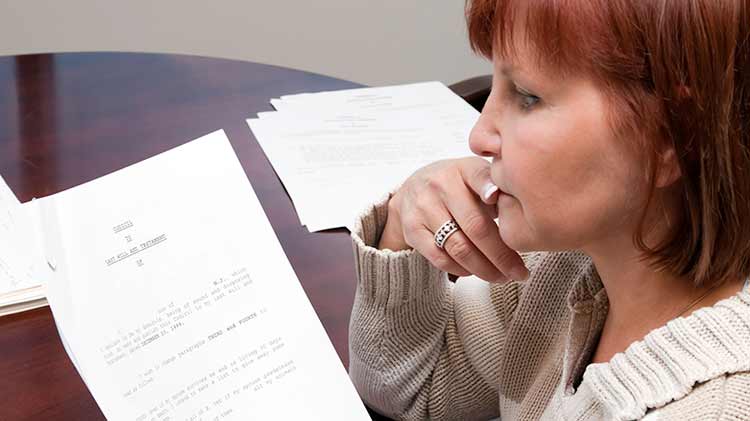Can you write a will without a lawyer?
Some people choose to write a will without a lawyer with the aid of a variety of online and digital tools.
A husband and wife came to Zach Morris, co-founder of the Atlanta-based Paces Ferry Wealth Advisors, after completing an online will. Upon reviewing the documents, Morris, whose firm is a registered investment advisor with the SEC, realized that they had each decided to leave $10,000 and their dog to their best friend. But the will didn't state what to do with the animal (or the money) if the friend died before them — meaning the couple could have accidentally left their pet and $20,000 to their best friend's next-of-kin.
It was a small error, but one that illustrates the risks of taking a DIY route for financial and estate planning. "When you're talking about legal terms, it's really something that you want to get right," Morris says.
Still, the ease and cost of DIY planning, including the ability to make a will online, is attractive to many people. And there are some tasks that are straightforward enough to DIY. Here are some points to consider before you choose to DIY financial and estate documents such as wills.
Some estate planning documents are (often) better than nothing
While a fill-in-the-blanks will can certainly create problems, many experts say that it's better than not having a will at all. And even the American Bar Association says that writing your own will may be appropriate in certain circumstances — for example, if you have modest assets in your name alone and wish to simply leave them to your closest surviving relative.
Keep your documents simple
If you do choose to DIY any financial and estate planning documents, focus on those that are simple. For instance, the National Institute on Aging advises that most people don't need an attorney to draw up an advance directive (also known as a living will) that details wishes about medical procedures and end-of-life care.
Simple online will
Here are a few tips to get you started on how to make a will without a lawyer.
- One option is FreeWill to write a will online. It’s free and can be completed in as little as 20 minutes.
- For your will to be valid, you must include the appropriate language, such as your full legal name, that you are of sound mind and that this is your last will and testament.
- If you have children under 18, choose a guardian.
- Make sure you list all your assets, including physical and financial assets.
Wills can be very costly if done by a lawyer. Wills done by yourself can cost under $100. If you decide to get a lawyer, you can still use this template to create your documents to help save you money.
DIY financial planning document updates
While crafting a will and other estate documents can be complicated and may require the help of a professional, other tasks do not. For example, simple housekeeping tasks such as updating the beneficiaries on your retirement accounts takes just minutes. Do a yearly review of all documents to make sure items such as this are changed as needed. In addition, a will should be revised every few years and also after any major life event, such as a move or the birth of a child.
Keep financial and estate documents organized
Another task that doesn't require professional help is simply getting your affairs in (literal) order. Make sure to have all your account information — including usernames and passwords — in a secure spot known to your estate executor or family. You should also prepare a user manual for your executor or trustee outlining the steps necessary to carry out your final wishes.
Paying for professional help has benefits
It is an investment to pay a financial or legal advisor, but it's not just an investment in paperwork. You're paying for a professional's expert advice and for them to see and correct mistakes based on their experience and knowledge. In the end, that help could save you both money and heartache. If you have complicated finances, exact wishes or if you just feel unsure about what you're doing, hiring a professional is an investment in you and your loved ones.




